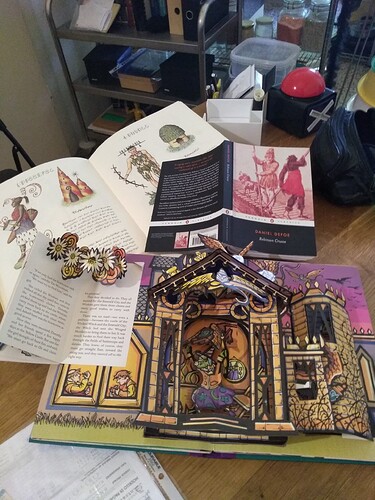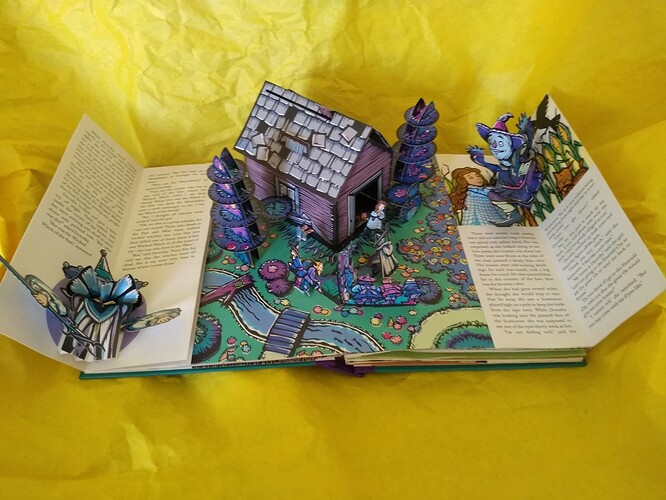I enjoy when the day is done, sitting down in my comfy chair, reach up and turn on the reading lamp, feel the weight of a real printed book in my hands. A book already read countless times. There is something about having to lap my finger, that pause to flip the page that I enjoy. But finally, although I don’t want to, am too sleepy, so place my favorite bookmark - the one my Mom made with the yarn through the hole in the top - and go to bed.
My great-grandson has not experienced or learned the beauty and art of just reading a book. And although I have tried to teach him - he too bored. But I imagine in the future he will remember the lost days of the ‘tablet’.


 though?
though?